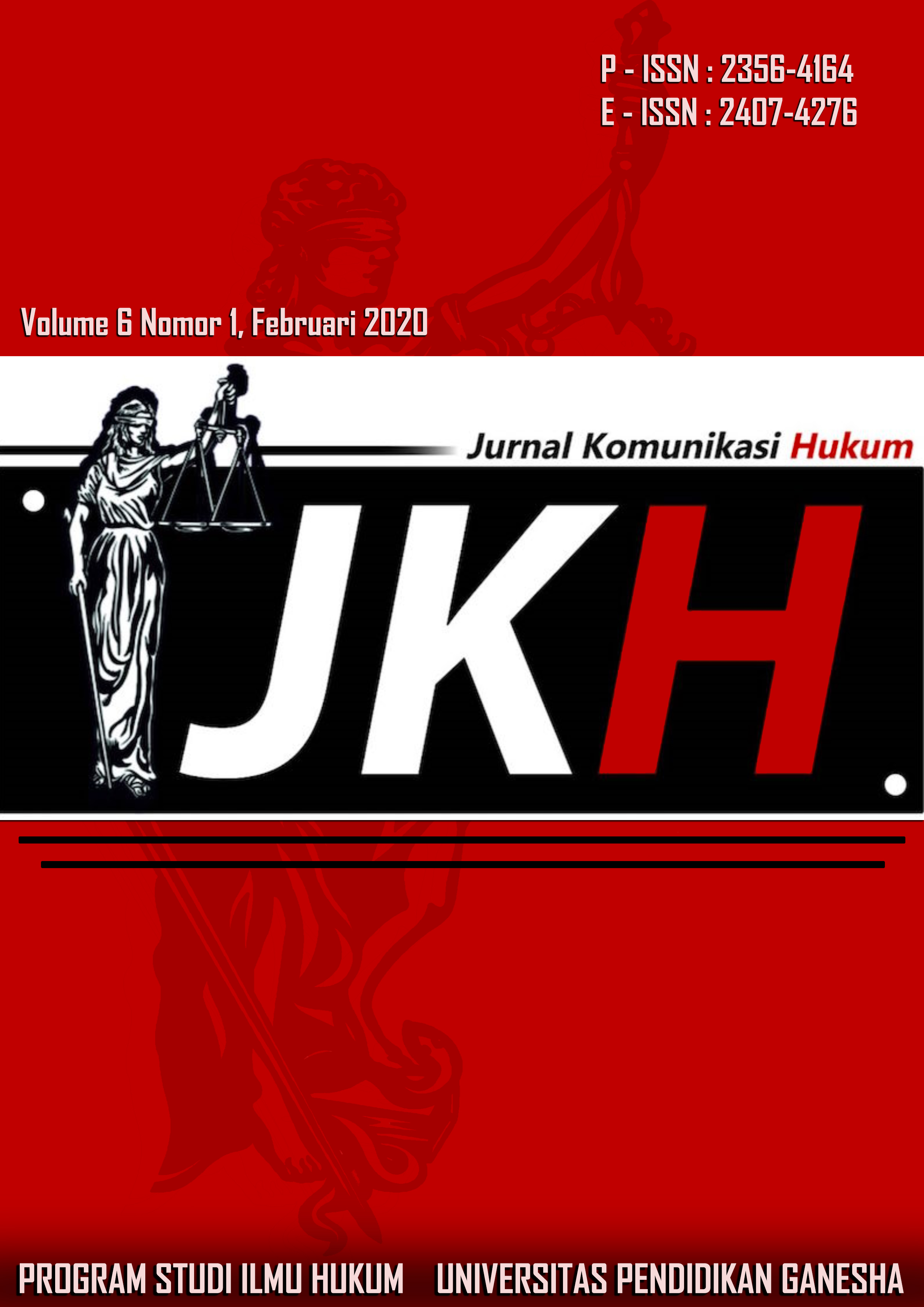RELEVANCE OF RIGHT TO ECONOMIC SELF-DETERMINATION (RESD) PRINCIPLES OF INDONESIAN SOVEREIGNTY IN BILATERAL INVESTMENT TREATY (BIT)
DOI:
https://doi.org/10.23887/jkh.v6i1.23468Abstract
The RESD principle is relevant for protecting the sovereignty of the Indonesian state in BIT negotiations, formulations and implementation. This relevance is based on the willingness and ability of the Indonesian state to exercise its sovereign authority responsibly in managing foreign investment. Accountability of sovereignty functions in the context of foreign investment can be proven through the willingness and ability of the functions it carries to ensure the availability of political good and public good to all parties who invest in their jurisdiction. Proving the country can be done through three main principles of the implementation of state sovereignty, namely responsibly, in accordance with good governance, and international standards of civilization. These three principles are manifested in the country's willingness and ability to guarantee political good in carrying out foreign investment relations with foreign investors and partner countries. Political good in this context is democratic governance (rule of law), good governance (anti-corruption). The implication of this legitimacy is that the state is spared or even cannot be interfered by other authorities, because it has a bargaining position.
Keywords: Right to Economic Self-Determination (RESD), Bilateral Investment Treaty (BIT), Sovereignty.
Downloads
Published
How to Cite
Issue
Section
License
Authors who publish with this journal agree to the following terms:- Authors retain copyright and grant the journal right of first publication with the work simultaneously licensed under a Creative Commons Attribution License that allows others to share the work with an acknowledgement of the work's authorship and initial publication in this journal.
- Authors are able to enter into separate, additional contractual arrangements for the non-exclusive distribution of the journal's published version of the work (e.g., post it to an institutional repository or publish it in a book), with an acknowledgement of its initial publication in this journal.
- Authors are permitted and encouraged to post their work online (e.g., in institutional repositories or on their website) prior to and during the submission process, as it can lead to productive exchanges, as well as earlier and greater citation of published work (See The Effect of Open Access).
Authors who publish with this journal agree to the following terms:
- Authors retain copyright and grant the journal right of first publication, with the work [SPECIFY PERIOD OF TIME] after publication simultaneously licensed under aCreative Commons Attribution License that allows others to share the work with an acknowledgement of the work's authorship and initial publication in this journal.
- Authors are able to enter into separate, additional contractual arrangements for the non-exclusive distribution of the journal's published version of the work (e.g., post it to an institutional repository or publish it in a book), with an acknowledgement of its initial publication in this journal.
- Authors are permitted and encouraged to post their work online (e.g., in institutional repositories or on their website) prior to and during the submission process, as it can lead to productive exchanges, as well as earlier and greater citation of published work (See The Effect of Open Access).












